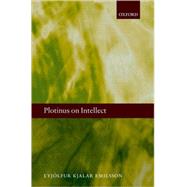
Note: Supplemental materials are not guaranteed with Rental or Used book purchases.
Purchase Benefits
What is included with this book?
| Introduction | p. 1 |
| Emanation and Activity | p. 22 |
| Internal and External Activity | p. 24 |
| One or Two Acts? | p. 30 |
| Motion and Activity in VI.1 and VI.3 | p. 34 |
| Absolute Motions | p. 38 |
| The Case of Walking and its Trace | p. 42 |
| Emanation and Internal and External Acts Again | p. 48 |
| The Sources of the Double Act Doctrine I: Aristotle | p. 52 |
| The Sources of the Double Act Doctrine II: Plato | p. 60 |
| The Genesis of Intellect | p. 69 |
| The Inchoate Intellect and its Conversion | p. 70 |
| Kinds of Plurality or Otherness | p. 78 |
| Analysis of V.3.10 | p. 80 |
| The Intellect's Undifferentiated Impression of the One | p. 90 |
| Pre-noetic Experience and Mystical Union with the One | p. 101 |
| The Two Kinds of Otherness Again | p. 103 |
| Self-Thinking and the First Person | p. 107 |
| Intellect and Being | p. 124 |
| Cognition, Images, and the Real | p. 124 |
| The Nature of Sense-Perception | p. 127 |
| Evidence for Subjectivism or Idealism | p. 129 |
| The Identity of Subject and Object in Intellect | p. 141 |
| The Puzzles of Ennead V.3.5: Self-Thinking Revisited | p. 144 |
| Being and Thought | p. 152 |
| The Difference and Identity between Subject and Object | p. 157 |
| Subordinate Intelligibles and Subordinate Intellects | p. 160 |
| Truth in Intellect | p. 165 |
| The Notion of the Given | p. 170 |
| Plotinus' Idealism | p. 173 |
| Discursive and Non-discursive Thought | p. 176 |
| Non-discursive vs. Discursive Thought: the Main Contrasts | p. 177 |
| Is Non-discursive Thought Propositional? | p. 185 |
| Non-discursive Thought and Perceptual Imagery | p. 191 |
| The Holism of Intellect | p. 199 |
| Discursive Thought's Dependence on Intellect | p. 307 |
| References | p. 214 |
| Index of cited texts | p. 221 |
| General index | p. 229 |
| Table of Contents provided by Ingram. All Rights Reserved. |
The New copy of this book will include any supplemental materials advertised. Please check the title of the book to determine if it should include any access cards, study guides, lab manuals, CDs, etc.
The Used, Rental and eBook copies of this book are not guaranteed to include any supplemental materials. Typically, only the book itself is included. This is true even if the title states it includes any access cards, study guides, lab manuals, CDs, etc.